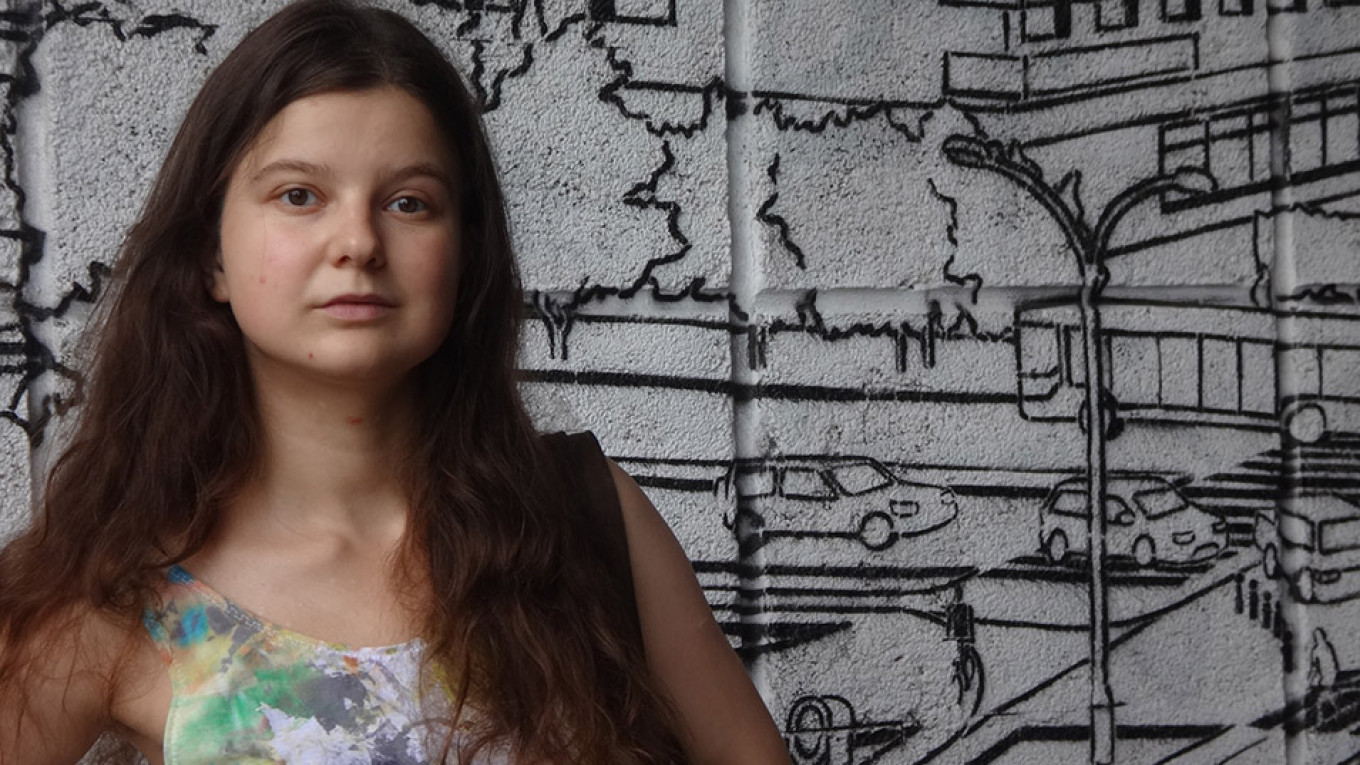“They say that a hunger strike is declared out of despair, and yes, it’s hard not to agree with that,” Yulia Tsvetkova, a Russian feminist and LGBTQ+ activist and artist, wrote on social media on 1 May as she announced that she would start a hunger strike. “Why a hunger strike? As a person accused of a ‘serious’ crime, I have almost no rights. There is no freedom. No voice. No ability to stand up for myself and my beliefs in the outside world.”
Tsvetkova, who won Index on Censorship’s 2020 Freedom of Expression Award in the arts category, was charged with criminal distribution of pornography in June 2020 for having published body-positive drawings on a social media group she had called the “Vagina Monologues”. She is facing up to six years in prison. While the trial is ongoing, she is forced to remain in her home city of Komsomolsk-on-Amur in Russia’s Far East.
“I’ve recently realised that I can no longer sit still and watch the shame of what’s going on in this country and how my life is being derailed. And when I think about it, what other options do I have for non-violent protest?” she wrote in what was her first social media post in eight months. She also used the opportunity to call on the authorities to stop subjecting her to the protracted judicial harassment. “I just ask you not to waste any more of my time on a farce called ‘Russian justice’”.
Shortly thereafter, photos from the search of her apartment, which had taken place in 2019, were posted online and were being circulated on homophobic public forums. “I don’t know how they got on the web,” Tsvetkova’s lawyer Aleksandr Pikhovkin told Index on Censorship via email, “but we should understand that these [photos] were taken by the criminal investigation department and are under a special procedure of admittance and only for a [small] number of officers. Anyway, disclosure of these materials was made to demoralise Yulia. I think she perceived it like a kind of psychological pressure. And yes, as I realise, she felt herself harassed, suffered and disgusted.”
At the same time, a state channel ended up with Tsvetkova’s personal documents, correspondence, and tickets from her work trips. According to a social media post from Yulia on 6 May, the same channel broadcast an “expert” alleging that Tsvetkova’s work is “aimed purely at molesting minors” and that her drawings “have the same impact as the actions of paedophiles.” “Whether or not [these events] are related to my statement [on 1 May on social media] is probably up to everyone to decide for themselves,” Yulia said in the post.
“Were these abhorrent actions part of a coordinated effort to intimidate and punish Yulia for criticising the authorities? It certainly seems likely,” Index on Censorship’s CEO Ruth Smeeth said. “Yulia has done nothing more than express her very justifiable frustration with this ongoing judicial harassment. We continue to be appalled at Yulia’s treatment and stand in full solidarity with her. We call – yet again – on the Russian authorities to immediately and unconditionally drop all charges against her.”
On 7 May, Yulia announced that she was ending her hunger strike. “I reach a dead end, realising that those on the other side have no honour,” Yulia posted. “If the strategy has proved to be unworkable, it needs to be changed. I am stopping the hunger strike for now, because it is the right thing to do (just as it was the right thing to start it). And I’m looking for a new strategy.






